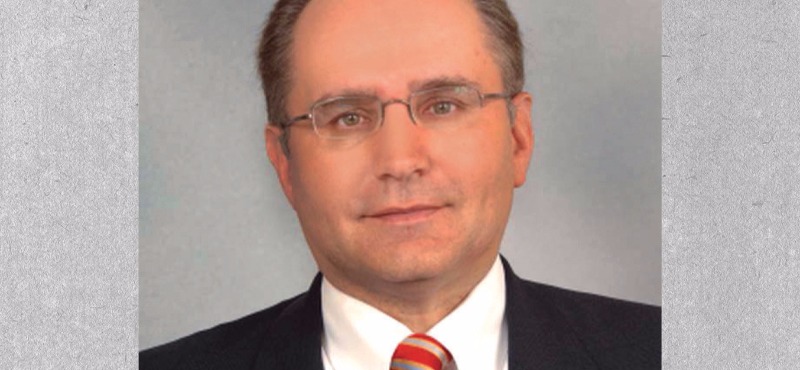Why the Secure Act of 2019 May Not Make You Feel Very Secure
By: Anthony J. Enea, Esq.
The passage of the “Setting Every Community up for Retirement Enhancement” (SECURE) Act of 2019, which became effective January 1, 2020, made a number of significant changes relevant to IRAs, 401(K)s and other qualified retirement benefits.
However, within the SECURE Act there is one provision that is causing great angst for individuals without a surviving spouse or any other eligible designated beneficiary for their IRA, 401(K), or other retirement benefits.
The most significant and positive changes in the SECURE Act are as follows:
(a) The age to commence required minimum distributions from one’s IRA, 401(K), etc (April 1stof the following calendar year) is changed from age 70 ½ to age 72 for those who reached age 70 ½ after 12/31/19;
(b) Contributions can continue to be made to a traditional IRA after age 70 ½ so long as you are still working. This allows the rules for an IRA to be more closely aligned with 401(K) plans and Roth IRAs;
(c) Prior to the enactment of the SECURE Act, if one worked less than 1,000 hours per year, they were ineligible to participate in the company’s 401(K) plan. The new law requires an employer to offer an employee who worked more than 1,000 hours in one year or 500 hours over two consecutive years to plan participation;
(d) Small business owners can now receive a tax credit of up to $5,000 for starting a retirement plan;
(e) Small business owners will be able to join together to offer defined contribution retirement plans. The new law makes the use of open multiple employer plans (MEPs) easier to utilize. An open MEP can help deliver a low cost retirement plan for small business owners;
(f) An individual can now take a qualified birth or adoption distribution of an amount up to $5,000 from a qualified plan, 401(K) or IRA without any withdrawal penalty; and
(g) A 529 plan can be used to pay down student loan debt up to $10,000 during the lifetime of a student and pay for certain apprenticeship programs. Thus, after a student has graduated, the leftover funds in the 529 plan can be used to pay student loan debt up to $10,000 over the lifetime of the student.
As one can imagine, all of the above stated changes to the rules for IRAs, 401(K)s and other qualified retirement plan distribution will cost the federal government billions in tax revenue. In fact, it is estimated that just changing the required minimum distribution age (RMD) from 70 ½ to 72 years of age will cost $8.86 billion over 10 years.
Not surprisingly, Congress found a way to pay for all of the changes stated above over a 10-year period by mandating that distributions from IRAs, 401(K)s, and other qualified plans made to anyone other than an eligible designated beneficiary, being a spouse, minor child, disabled individual, chronically ill person and an individual not more than 10 years younger than the plan participant; be made within 10 years from the death of the plan participant.
Thus, the SECURE Act eliminates the ability of everyone other than the above defined eligible designated beneficiaries from being able to stretch an inherited IRA, 401(K) or other qualified plan over their lifetime. If one is not married (for example, single, divorced and/or widowed) and does not have a designated beneficiary, the beneficiary will no longer be able to stretch the distributions from the inherited IRA, 401(K) during their lifetime as stet the beneficiary of a plan participants who died before 12/31/19. They must draw down the entire IRA, 401(K), etc. within 10 years of the plan participant’s death or make the distribution in one lump sum. Depending on the size of the IRA, this means potentially incurring significant income tax liability.
For example, a $2 million IRA would result in the beneficiary (a non-eligible designated beneficiary) paying income taxes on $200,000 of additional annual income at their income tax rate. While a “conduit” trust can still be utilized for the beneficiary of one’s IRA, 401(K), etc for both one’s spouse and children, if the child(ren) do not fall within one of the classes of persons defined as an eligible designated beneficiary, they must draw down the entire plan within 10 years or take a one time lump sum distribution.
This one change is estimated to raise $15.7 billion of tax revenue over 10 years, compared to a cost of $16.3 billion for all of the changes implemented by the SECURE Act.
As previously stated, this will be an area that will create significant angst for those with large retirement plans with beneficiaries who are not an eligible designated beneficiary. As we are able to further assess the SECURE Act, we are hopeful that there may be some creative planning solutions to this problem. The promulgation of the Regulations by the IRS in the near future should help shed some light on the planning options available.
Anthony J. Enea, Esq. is the managing member of Enea, Scanlan & Sirignano, LLP with offices in White Plains and Somers, NY. Mr. Enea is chair of the New York State Bar Association’s Senior Lawyers Section. He was named Best Lawyers’ 2019 Trusts and Estates “Lawyer of the Year” in White Plains and Westchester County’s Leading Elder Care Attorney at the Above the Bar Awards.
































